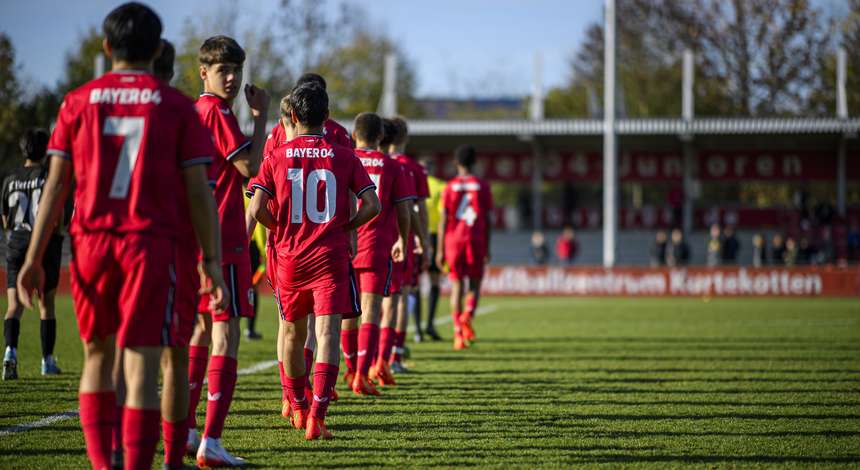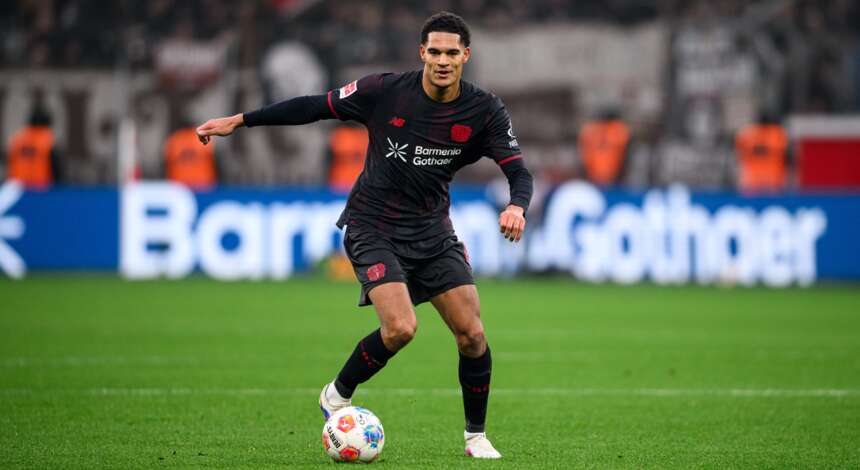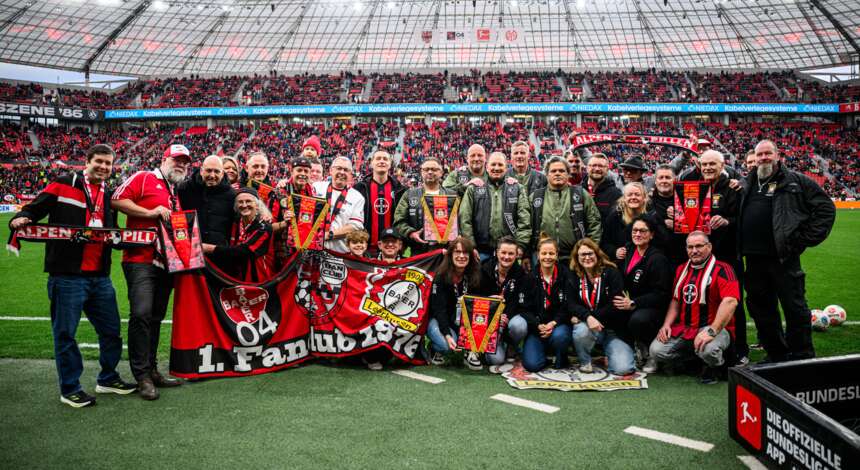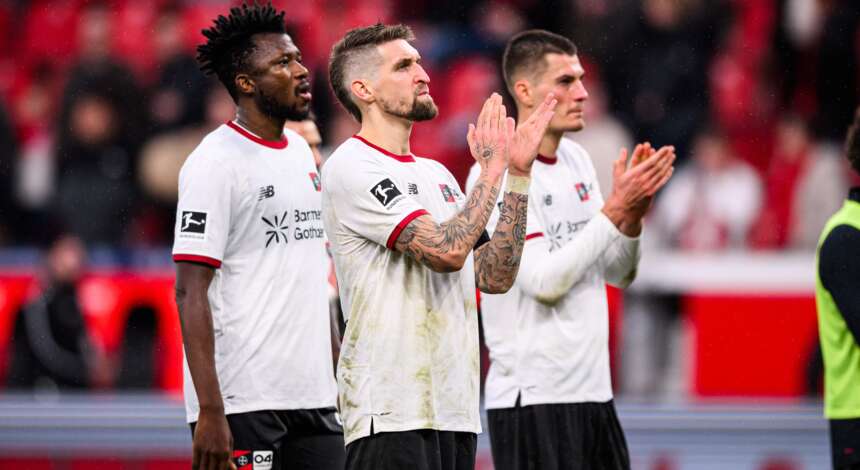
Lena, what does your normal advice for the youth teams at Bayer 04 cover?
Kadlec: My work fundamentally covers different aspects and subject areas. For me it is important to provide information on the subject of sports nutrition to the staff at Bayer 04 as well as the lads themselves and their parents. That can happen in the form of a one-on-one sessions but also through informative handouts and workshops, as for example with Ramadan.
The fasting period begins on the evening of 21 March and ends on 21 April. Between sunrise and sunset you are not allowed to eat or drink. How does your work change during this period?
Kadlec: The subject of Ramadan is special to the extent that it does not affect the whole squad. Last year I noticed that there was a big need to look at and explain this issue again from a completely different perspective. Not just for the players but also for the coaching staff and the lads parents. At this workshop I tried to combine tradition and science. There are few studies on this subject and the results aren’t always transferable to our players as the studies mainly deal with adults.
To what extent does an individual player’s fasting affect training and also matches at the weekend?
Kadlec: Despite fasting, the players continue to train intensively and they have to perform. Nevertheless, coaches and staff are obviously aware of which of the lads are practising Ramadan and they take account of that. I give the lads nutrition strategies of how they can produce the best possible performance levels during this demanding period but also how to avoid damage to their health.
Touré: "best games during Ramadan"
Former professional footballer Assimiou Touré is the integration officer at the Bayer 04 Performance Centre and a practising Muslim. He fasted during his many years as a professional player and now, along with Lena Kadlec, he organises the workshop for coaches, players and parents.
How can you prepare for the following weeks ahead of the start of the period of fasting?
Touré: It’s an individual thing that is also dependent on traditions within the family. In some families there is even fasting before the start of the fasting period to be able to get used to the rhythm. In addition to diet, it also generally changes the whole day and sleep patterns. Getting used to it can be advantageous but is not essential.
Kadlec: Sports nutrition generally requires a lot of management and organisation. Therefore, it’s important to us that we have the opportunity to communicate with the players, coaches and also the parents.
Do you think it’s possible that players maintain their best possible form despite the change in diet?
Touré: It’s an individual thing. Of course, there are pros and cons that come with changing diet. With me, I always played my best games when I was fasting. Obviously you are exhausted afterwards but you notice how much more our bodies and our minds can achieve. That mental element is something that can provide a boost. It can lead to inner peace and extend mental strength.
Kadlec: There are many aspects that have to be taken into account: age, individual physical strengths, family backgrounds, experience of fasting and much more. Cognitive performance is a key factor particularly in football. A lack of fluids can very quickly have a negative effect. In addition, symptoms such as dizziness, tiredness, headaches and loss of orientation can occur. Nevertheless, you can’t generalise. Our players report very different experiences in our mini workshops compared with previous years.
How important is it for players not just to receive support from home but also from a wider field such as Bayer 04 for example?
Touré: With younger players, support is also particularly important for parents. Perhaps many are concerned that their children will be disadvantaged if they cannot produce their normal performance levels. That’s also why the workshop is important. The coaches are briefed on what can happen to the mind and body during fasting.
Kadlec: The fact the subject of Ramadan is seen and dealt with in the club should also provide a signal. We consciously deal with it and we want to respect the religion and traditions of the lads and link that to football. We can all learn a lot from each other through that and gain experience.
On Ramadan:
From the evening of 21 March to 23 April is this year’s period of fasting in Islam. Ramadan is one of the five Pillars of Islam and is a basic duty for all practising Muslims (there are exceptions for special groups). Between sunrise and sunset it is not permitted to eat or drink. The two meals during Ramadan are called Suhoor (before sunrise) and Iftar (after sunset). The timing of Ramadan changes year by year but always takes place in the ninth month of the lunar calendar.
A survey organised by Bayer 04 sports nutritionist Lena Kadlec for the workshop revealed that every fourth youth player (U12 to U19 squads) at Bayer 04 will take part in the fast.
Related News

Vote now for Quansah as BL ‘Rookie of the Month’ for February
The German Football League (DFL) has announced the three candidates for Bundesliga ‘Rookie of the Month’ for February. Among the candidates is Werkself player Jarell Quansah. Fans of Bayer 04 can vote for their favourite on the Bundesliga app from now until Thursday, 5 March (23:59 CET).
Show more
U.S. Fan Club Recognized During 50th Anniversary Celebrations
On a day that celebrated 50 years of official Bayer 04 fan clubs with festivities on the pitch during the match against FSV Mainz 05 on Saturday, New York-based Werkself Warriors were proudly represented on the field by co-founder Alex Kramm.
Show more
Werkself review #B04M05: ‘We lacked rhythm and intensity on the ball’
The Werkself conceded a goal at home for the first time since the beginning of January 67 minutes into the game against FSV Mainz 05 on Saturday. Jarell Quansah levelled late on for the final score of 1-1 to secure a point and avoid a first home defeat in six games. Bayer 04 were very critical of their performance after the game. The Werkself review.
Show more
Rudi recounts…: Vollborn’s March highlights
Rüdiger Vollborn has been at the club for 40 years, he holds the record number of Bundesliga appearances for the club (401) and is the only Bayer 04 player to have won both the UEFA Cup (1988) and the DFB Pokal (1993). And the Berliner stayed with the Werkself after ending his impressive playing career as he worked as a goalkeeping coach for the following nine years. Vollborn now works under the Bayer Cross as a fan liaison officer and club archivist. Since February 2021, the personalised Black and Red lexicon takes Werkself fans under the heading of 'Rudi recounts...' on a brief trip through the history of Bayer 04 every month…
Show more